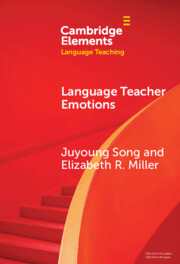Refine search
Actions for selected content:
455 results
Chapter 3 - Augustine’s Therapy of Emotions
-
-
- Book:
- Augustine's ‘Confessions'
- Published online:
- 16 December 2025
- Print publication:
- 22 January 2026, pp 46-64
-
- Chapter
- Export citation
Chapter 10 - Hume’s Geography of Feeling in A Treatise of Human Nature
-
-
- Book:
- Hume's <i>A Treatise of Human Nature</i>
- Published online:
- 05 December 2025
- Print publication:
- 08 January 2026, pp 170-190
-
- Chapter
- Export citation
Chapter 8 - How to Read Book 2 of the Treatise
-
-
- Book:
- Hume's <i>A Treatise of Human Nature</i>
- Published online:
- 05 December 2025
- Print publication:
- 08 January 2026, pp 134-151
-
- Chapter
- Export citation
5 - The Conservative Mind
-
- Book:
- Reactionary Politics in South Korea
- Published online:
- 17 December 2025
- Print publication:
- 18 December 2025, pp 141-178
-
- Chapter
- Export citation

Law and Torture
- Widening the Apertures from the Doctrinal to the Critical
-
- Published online:
- 17 December 2025
- Print publication:
- 18 December 2025
Chapter 3 - The Modalities of the Four Conformation System
- from Part I - Modes of Minding Social Action: Bodily Indices of Unity, Dimensional Icons of Rank, Concrete Matching Operations of Equality, Arbitrary Symbols of Proportions
-
- Book:
- Representing Relationships
- Published online:
- 21 November 2025
- Print publication:
- 11 December 2025, pp 76-92
-
- Chapter
- Export citation
Chapter 5 - The Missiles of 1962
-
- Book:
- Entanglements in World Politics
- Published online:
- 27 November 2025
- Print publication:
- 11 December 2025, pp 175-221
-
- Chapter
-
- You have access
- Open access
- HTML
- Export citation

Hume's A Treatise of Human Nature
- A Critical Guide
-
- Published online:
- 05 December 2025
- Print publication:
- 08 January 2026
4 - Cultural Foundations for Conserving Human Capacities in an Era of Generative Artificial Intelligence
- from Part I - Conceptualizing the Digital Human
-
-
- Book:
- Being Human in the Digital World
- Published online:
- 11 November 2025
- Print publication:
- 20 November 2025, pp 45-62
-
- Chapter
-
- You have access
- Open access
- HTML
- Export citation
16 - Culture
-
-
- Book:
- Explaining the History of American Foreign Relations
- Published online:
- 24 October 2025
- Print publication:
- 13 November 2025, pp 324-341
-
- Chapter
- Export citation
Confronting stasis and navigating pathways of change in green finance: Researcher agencies, emotions, and normativities
-
- Journal:
- Finance and Society / Volume 11 / Issue 3 / December 2025
- Published online by Cambridge University Press:
- 13 November 2025, pp. 460-472
-
- Article
-
- You have access
- Open access
- HTML
- Export citation
17 - Meaning and Emotion
-
-
- Book:
- Explaining the History of American Foreign Relations
- Published online:
- 24 October 2025
- Print publication:
- 13 November 2025, pp 342-362
-
- Chapter
- Export citation
Emotional language reduces belief in false claims
-
- Journal:
- Judgment and Decision Making / Volume 20 / 2025
- Published online by Cambridge University Press:
- 05 November 2025, e43
-
- Article
-
- You have access
- Open access
- HTML
- Export citation
Emotions and political legitimacy in eighteenth-century North India: the case of the Afghan text Ḵẖulāṣat ul-Ansāb
-
- Journal:
- Journal of the Royal Asiatic Society , First View
- Published online by Cambridge University Press:
- 24 October 2025, pp. 1-19
-
- Article
-
- You have access
- Open access
- HTML
- Export citation
What traits do citizens value in leaders during war? Experimental and panel-based evidence from Ukraine in 2022
-
- Journal:
- Political Science Research and Methods , First View
- Published online by Cambridge University Press:
- 07 October 2025, pp. 1-10
-
- Article
-
- You have access
- Open access
- HTML
- Export citation
Chapter 13 - Olfaction and Emotion
- from Section III - Emotion Perception and Elicitation
-
-
- Book:
- The Cambridge Handbook of Human Affective Neuroscience
- Published online:
- 16 September 2025
- Print publication:
- 02 October 2025, pp 266-287
-
- Chapter
- Export citation
Sentiment de reconnaissance des familles
-
- Journal:
- Canadian Journal on Aging / La Revue canadienne du vieillissement , First View
- Published online by Cambridge University Press:
- 19 September 2025, pp. 1-8
-
- Article
-
- You have access
- Open access
- HTML
- Export citation
Chapter 7 - The Role of Magnitude in Stoic Emotions
-
-
- Book:
- Cicero's <i>Tusculan Disputations</i>
- Published online:
- 11 September 2025
- Print publication:
- 18 September 2025, pp 121-141
-
- Chapter
- Export citation
Chapter 5 - The Goals of Cognitive Behavioural Therapy
- from Part II - Putting the Model of Cognitive Behavioural Therapy into Practice
-
- Book:
- Cambridge Guide to Cognitive Behavioural Therapy (CBT)
- Published online:
- 18 November 2025
- Print publication:
- 18 September 2025, pp 43-48
-
- Chapter
- Export citation

Language Teacher Emotions
-
- Published online:
- 17 September 2025
- Print publication:
- 09 October 2025
-
- Element
- Export citation
